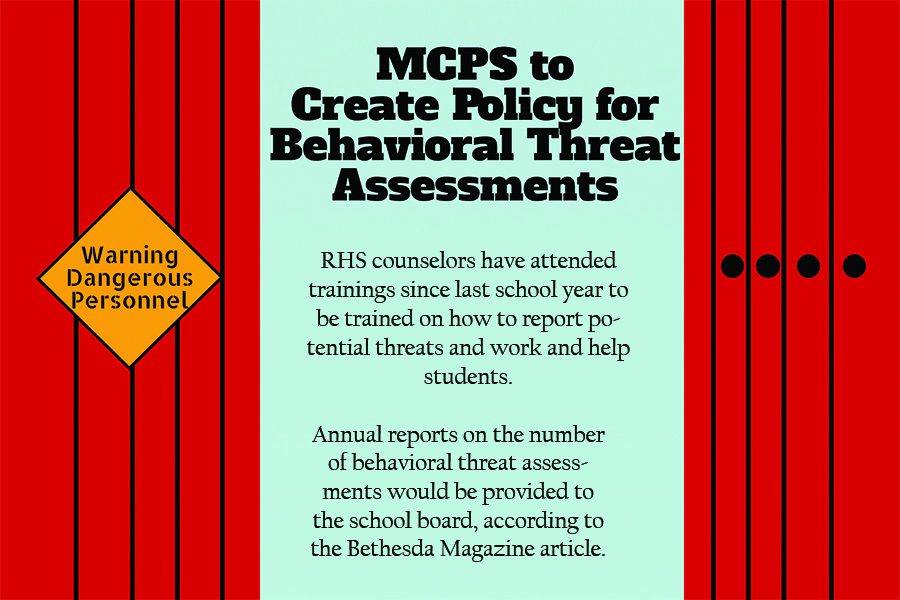MCPS To Create Policy for Behavior Threat Assessments
June 3, 2019
MCPS drafted a Behavioral Threat Assessment Policy midway through this school year to formally implement protocols to identify potential threats from any individual on school property, especially students.
Each school will form behavioral threat assessment teams comprised of administrators, law enforcement and staff members with experience responding to mental health crises, according to an April 9 Bethesda Magazine article. Each team member will attend a two-day training on how to react to threats based on the “pathway to violence” scale measuring the person’s threat level.
“We want to look and see what’s going on and what we can we do to stop an individual from going down a path of violence,” MCPS director of psychological services Christina Conolly said in a April 9 Bethesda Magazine article. “The goal is intervention, not just saying we’re going to suspend those kids.”
RHS counselors have attended trainings since last school year to be trained on how to report potential threats and work and help students.
The new proposed policy would bring MCPS into compliance with legislative mandates and would follow Gov. Larry Hogan’s April 2018 Maryland Safe to Learn Act.
“It is a comprehensive process for the development of a triage and case management process for individuals that threaten to harm others. It does involve formal protocols for triaging and providing case management of reported threats,” Conolly said.
Annual reports on the number of behavioral threat assessments would be provided to the school board, according to the Bethesda Magazine article.
Furthermore, MCPS will appoint Chief Safety Officer Ed Clarke as a liaison between local law enforcement agencies and the Maryland Center for School Safety.
“I think it will be really beneficial to have a liaison with local law enforcement and coordinate with mental health services because MCPS can’t solve the mental health epidemic and school safety alone. They need experts and people directly involved with the issue to make progress,” junior Emma Clark said. “I would feel a lot safer knowing they had experts involved.”





